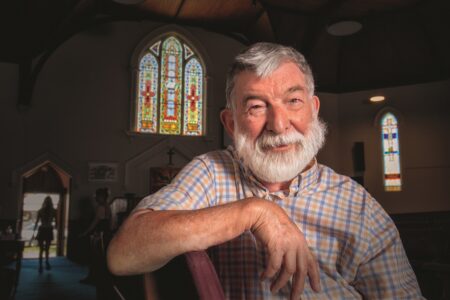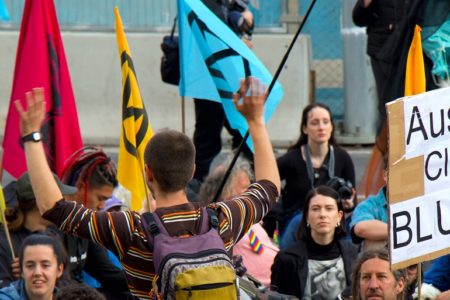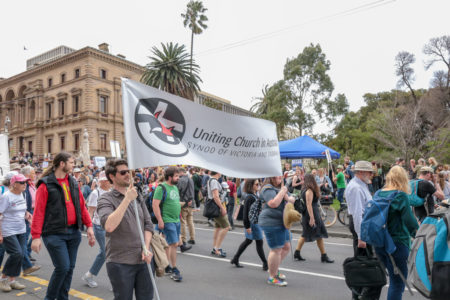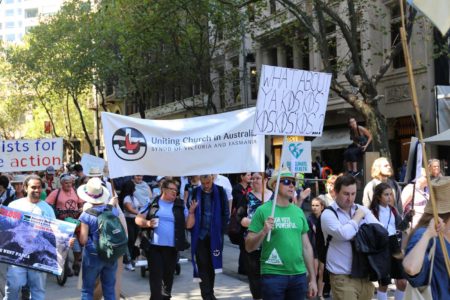By Andrew Humphries
Warragul Uniting Church member David Morison only has to listen to the sound of children playing at the adjacent St Andrew’s Kindergarten to know how important the battle against climate change has become.
As a grandfather himself, David worries about the world we will be leaving future generations if we don’t do all we can to limit our use of fossil fuels.
It’s why the work he, and fellow congregation member Brian Ramage, have done in driving renewable energy options within the church is so important.
The pair make quite a team, with retired optician and former OPSM senior manager David looking after the administration side of things, while Brian adds the engineering expertise.
“As quite a few of us have home solar systems, Brian, a retired engineer, took on the project of finding a more sustainable and cost-effective system for the church,” David says.
“Brian is the nuts and bolts part of the operation, while I’m the numbers cruncher.
“We work well and the Church Council is very supportive of what we’re doing.”
A concerted push away from the use of gas, and towards solar energy, has paid dividends for the congregation, on both an environmental and financial basis.
As a long-standing member of the Church Council, David was familiar with its financial position and says it was becoming apparent that a serious look at renewable energy options was needed if it was to have any sort of long-term financial future.
“We hear a great deal these days about the cost of living crisis impacting many Australians, and the same applies to churches like ours,” he says.
“Our energy costs have increased dramatically and those costs were starting to frighten us when we had a good look at them.
“One of our solutions was to look at solar panels as a means of reducing our electricity costs, and a complete project was put together and presented to the congregation late last year.
“We asked the congregation if they were prepared to come on board, both financially and with support in general.
“The acceptance was overwhelming and donations received covered the cost of solar panel installation, with a tidy sum left over to commence the gas reduction project.
“As this project will drastically reduce the kindergarten’s energy costs, they also came on board with a substantial contribution.”
About 60 panels were installed, meaning a significant reduction in costs for the congregation and kindergarten.
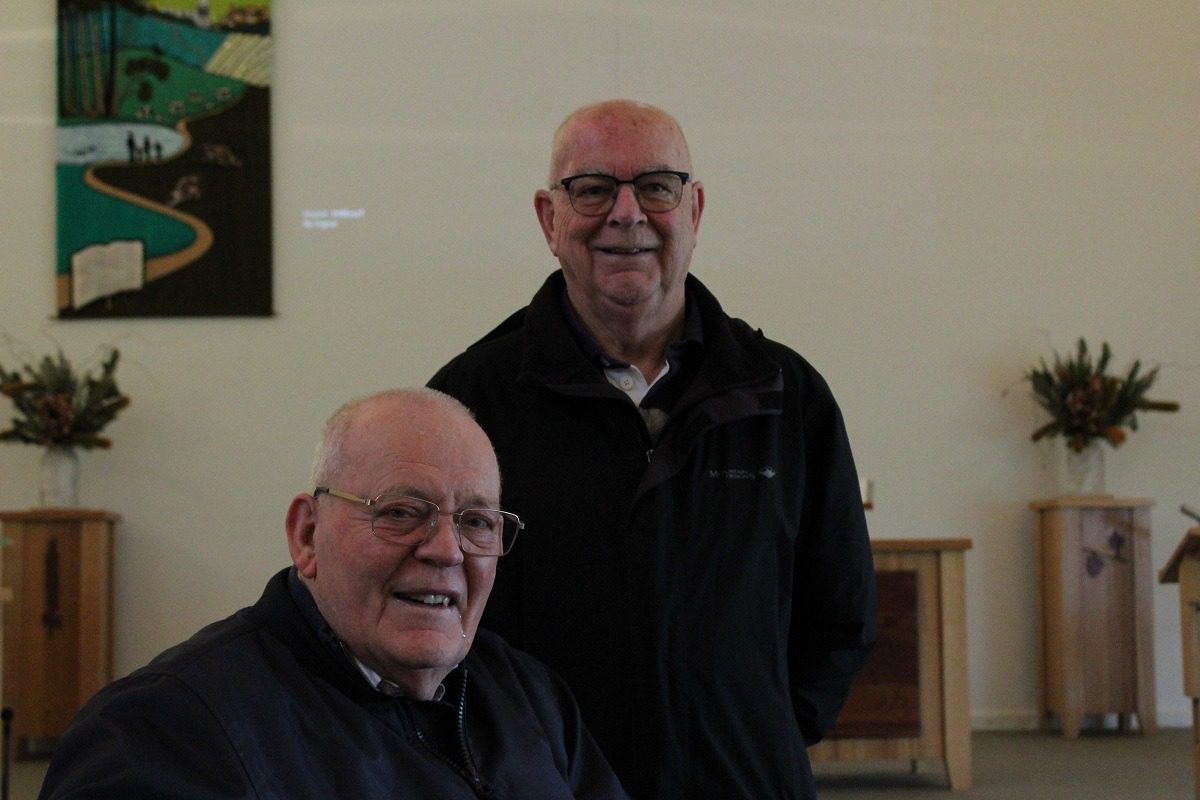
Brian Ramage and David Morison are driving Warragul’s work on promoting the use of renewable energy.
“Under the memorandum of understanding we have with the kinder, it’s responsible for paying 50 per cent of the energy costs, so we were keen to put something in place that negated the amount they had to contribute,” David says.
“We were able to put enough solar panels on so that the only bills that come through will be for supply charge only, and the amount of electricity we put back into the grid will just about pay for that as well.”
The work hasn’t gone unnoticed at the kindergarten, run by Uniting VicTas, with St Andrew’s teacher Belinda Medlyn saying the children are now reaping the rewards of the congregation’s planning and hard work.
And, in the process, it’s teaching the children a lesson or two about looking after the environment.
“We were eager to work alongside the church to install the solar panels as it would benefit both groups, and we think we’ll save about $6000 a year on electricity bills, plus the feed-in tariffs,” Belinda says.
“We’re all working towards being carbon neutral and doing our bit to reduce global warming, in line with Uniting Church goals.”
With the installation of solar panels ticked off, phase two for the congregation is to move away completely from gas.
“Over the next few months the ducted gas heating and gas wall space heaters will be replaced with split systems, the gas hot water system with a heat pump, and the kitchen oven and cooktop (switched over) to more efficient units,” David says.
“We believe we can reduce our total costs by around $10,000 to $12,000 a year, and that means a more sustainable church for the next 20 years.
“We also have to act in a sustainable way for the future of our children, and that fact is apparent all the time with the kinder being next door.
“This is their future we’re talking about … and the congregation has a real commitment to doing what it can to reduce the impacts of climate change.
“As we are stewards of this planet we need to leave a legacy for our children, and it’s up to us to be responsible and try to turn things around.
“With God’s guidance, and some engineering knowhow, we can get there.”
Belinda says the congregation’s constructive action is also playing a role in educating the children on looking after their own part of the world, and is strengthening the connection between the children and congregation members.
“We encourage the children to recognise the need and benefits to looking after the world in which we live,” she says.
“We are fortunate to have such a rewarding relationship with the congregation and we’ve begun sharing ways of joining together for different activities.
“We’ve invited the congregation members to come and participate in the kindergarten program such as reading stories and sharing craft experiences.
“The children have enjoyed listening to the congregation’s choir practice, and engaging in the shared community garden.”
Minister Rev Ian Brown is delighted with the work done and says it signals a commitment to a positive future.
“A bit of faith in the future is what we feel we have been able to exercise here,” he says.
“Sure it’s got some cost cutting motives, and it’s aligned with UCA policy and with national energy futures, but mostly for me this is a sign of faith.
“We believe in the future of Christ’s ministry in this community, with a sustainable future that is part of our care for our environment, going forward together in faith.”
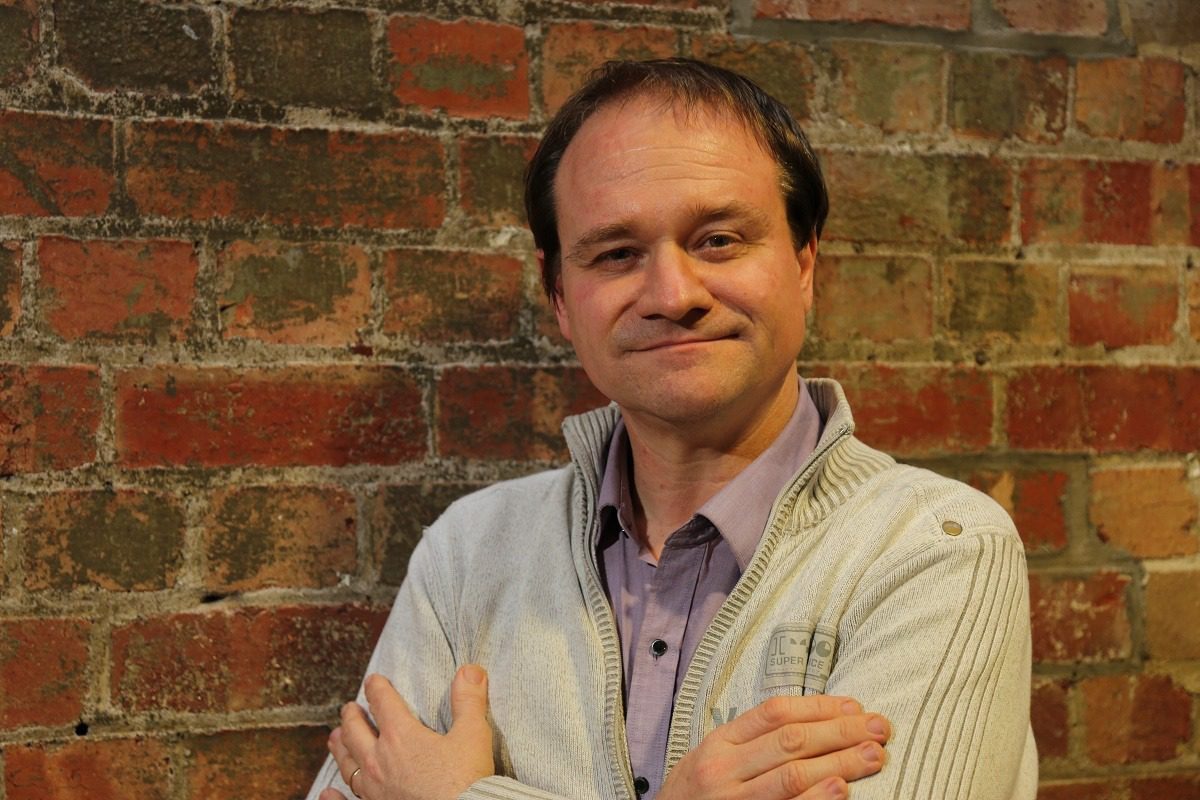
Mark Zirnsak says the Synod Emissions Reduction Fund will play a major role in the goal to reach zero emissions by 2040.
SERF’s up to tackle emissions
By Mark Zirnsak
The November 2023 Synod meeting resolved to establish a Synod Emissions Reduction Fund (SERF) “to be accessible to congregations and presbyteries for any spending that will reduce emissions in their operations and activities”.
The Synod will aim to reach zero emissions in its direct greenhouse gas emissions by 2040 at the latest.
The SERF will provide funding and practical assistance to congregations wanting to reduce their greenhouse gas emissions.
The main limitation that will apply to the SERF is that it focuses on assisting the Synod’s target of zero emissions by 2040.
Thus, priority will be given to reduce emissions related to buildings and activities that are likely to still be part of the Synod in 2040.
The Synod meeting set aside $100,000 as the initial funding for the SERF.
The funds will be directed to applications that make the most significant contribution to reducing emissions.
Grants must consider any other ethical issues related to the application of the fund and other Synod resolutions and policies, such as suppliers being implicated in serious criminal activity, human rights abuses, or excessive environmental destruction.
For example, the SERF will help congregations purchase solar panels with the lowest likelihood of forced labour being involved in their production.
The SERF will be administered by church members who have indicated they are committed to seeing the Synod reduce its emissions and have been approved by the Synod Ministry and Mission Committee.
The church members managing the SERF will receive administrative assistance from the Synod Justice and International Mission Cluster.
The group administering the SERF will be able to actively encourage and assist congregations, faith communities, and presbyteries in making applications and ensure that the applications are consistent with the SERF’s objectives.
If you would like to learn more about the SERF or how to make an application, call (03) 9340 8807 or email [email protected]
Mark Zirnsak is the Synod’s Senior Social Justice Advocate


